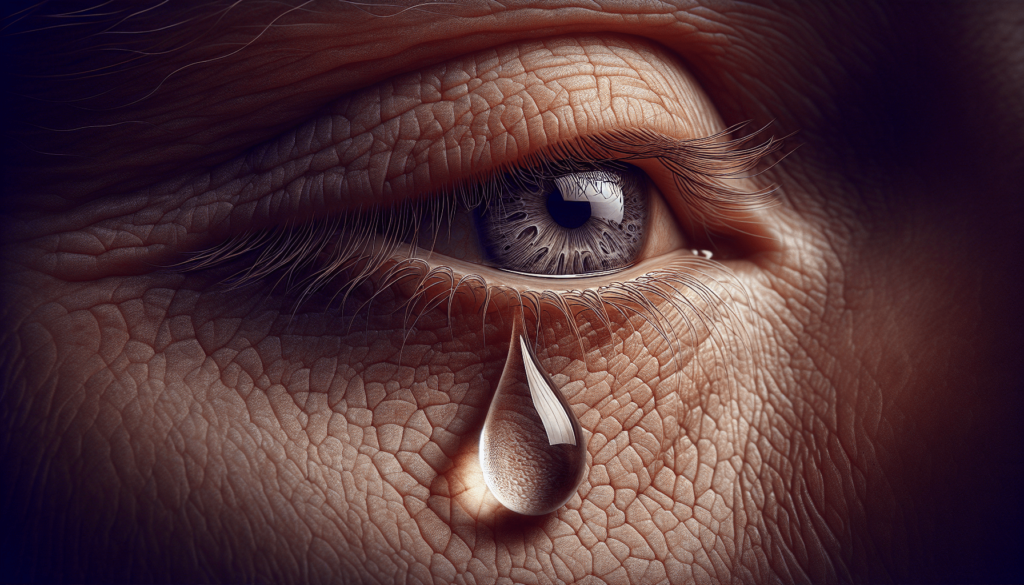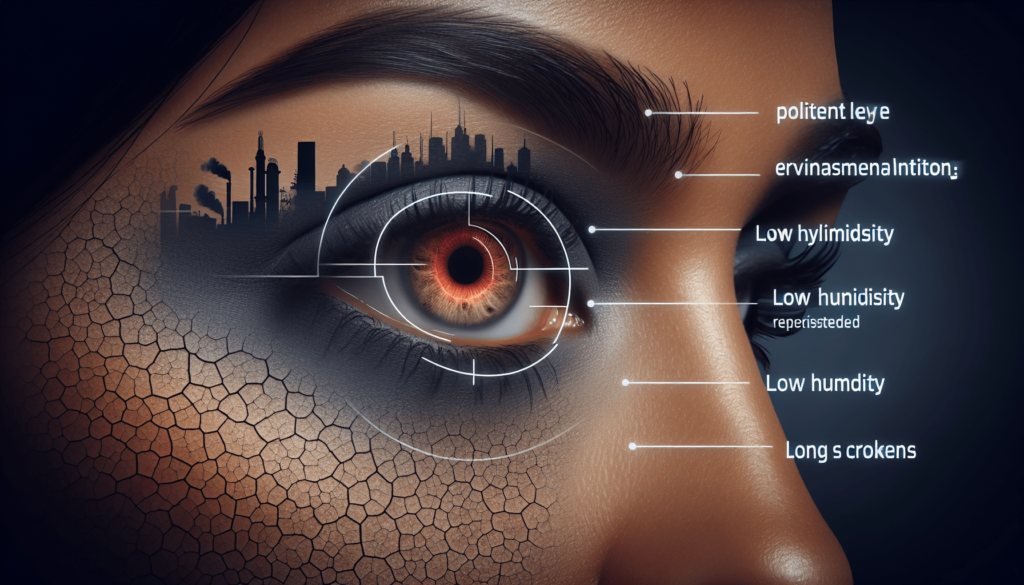Welcome, friends! Today, let’s delve into the topic of how dehydration can impact dry eye symptoms. Lack of proper hydration can lead to decreased tear production, resulting in dryness, irritation, and discomfort in the eyes. By understanding the connection between dehydration and dry eye symptoms, you can take steps to stay hydrated and promote optimal eye health. Let’s explore the importance of staying hydrated and its benefits for combating dry eye symptoms.
How Does Dehydration Affect Dry Eye Symptoms?
Have you ever experienced dry, irritated eyes but couldn’t figure out the cause? Dehydration may be playing a role in exacerbating your dry eye symptoms. Let’s delve into how dehydration can affect your eyes and what you can do to alleviate these symptoms.
Understanding Dry Eye Syndrome
Dry eye syndrome occurs when your eyes don’t produce enough tears or the tears evaporate too quickly. This can lead to a range of symptoms such as irritation, redness, sensitivity to light, and even blurry vision. Dehydration can worsen these symptoms and make them more uncomfortable.
The Importance of Hydration for Eye Health
Drinking an adequate amount of water is crucial for your overall health, including the health of your eyes. Staying hydrated helps maintain the balance of fluids in your body, including the tear film that keeps your eyes moist and lubricated. Without enough hydration, the tear film can become unstable and lead to dry eye symptoms.
How Dehydration Affects Tear Production
When your body is dehydrated, it prioritizes vital functions like maintaining blood pressure and regulating body temperature. As a result, tear production may decrease as a way to conserve water. This reduction in tear production can lead to dry eyes and exacerbate existing dry eye symptoms.
Dehydration and Tear Quality
Not only can dehydration decrease the quantity of tears produced, but it can also affect the quality of those tears. When you are dehydrated, the composition of your tears may change, becoming saltier and more concentrated. This can make the tears less effective at lubricating the eyes and result in irritation and discomfort.
Effects of Dehydration on Eye Comfort
Dehydration can make your eyes feel more dry, gritty, and uncomfortable. Without an adequate amount of water in your body, the eyes can become more prone to inflammation and irritation, leading to a persistent feeling of dryness. Proper hydration is essential for maintaining eye comfort and preventing dry eye symptoms.
Tips for Staying Hydrated
To combat the effects of dehydration on your eyes, it’s important to stay properly hydrated throughout the day. Here are some tips to help you maintain optimal hydration:
- Drink plenty of water: Aim to drink at least 8-10 glasses of water per day to stay hydrated.
- Eat water-rich foods: Include fruits and vegetables with high water content in your diet, such as watermelon, cucumbers, and oranges.
- Avoid dehydrating beverages: Limit your consumption of caffeinated and alcoholic beverages, as they can contribute to dehydration.
- Use a humidifier: If you live in a dry climate or spend a lot of time in air-conditioned environments, using a humidifier can help maintain moisture levels in the air and prevent dehydration.
Other Factors Contributing to Dry Eye Symptoms
While dehydration can play a significant role in exacerbating dry eye symptoms, there are other factors that can contribute to the condition as well. Some common culprits include:
- Aging: As we age, the production of tears naturally decreases, leading to a higher risk of dry eye syndrome.
- Environmental factors: Exposure to smoke, wind, and dry air can irritate the eyes and contribute to dryness.
- Digital eye strain: Spending long hours staring at screens can reduce blink frequency and lead to dry, tired eyes.
- Medications: Certain medications like antihistamines, decongestants, and antidepressants can cause dry eye symptoms as a side effect.
Seeking Professional Help
If you are experiencing persistent dry eye symptoms, it’s important to seek help from an eye care professional. They can determine the underlying cause of your symptoms and recommend appropriate treatment options. Treatment for dry eye syndrome may include:
- Artificial tears: Over-the-counter eye drops can provide temporary relief from dryness and irritation.
- Prescription medications: In some cases, your eye care provider may prescribe medicated eye drops to help manage dry eye symptoms.
- Lifestyle changes: Making adjustments to your daily habits, such as taking frequent breaks from screens and staying hydrated, can improve dry eye symptoms.
- In-office procedures: In severe cases of dry eye syndrome, your eye care provider may recommend procedures like punctal plugs to help retain tears and maintain moisture in the eyes.
Conclusion
Dehydration can have a significant impact on your eye health and exacerbate dry eye symptoms. By staying properly hydrated and taking steps to maintain a healthy tear film, you can alleviate dryness and discomfort in your eyes. If you are experiencing persistent dry eye symptoms, don’t hesitate to seek help from an eye care professional for a proper diagnosis and treatment plan. Remember, your eyes deserve the best care to stay healthy and comfortable.


